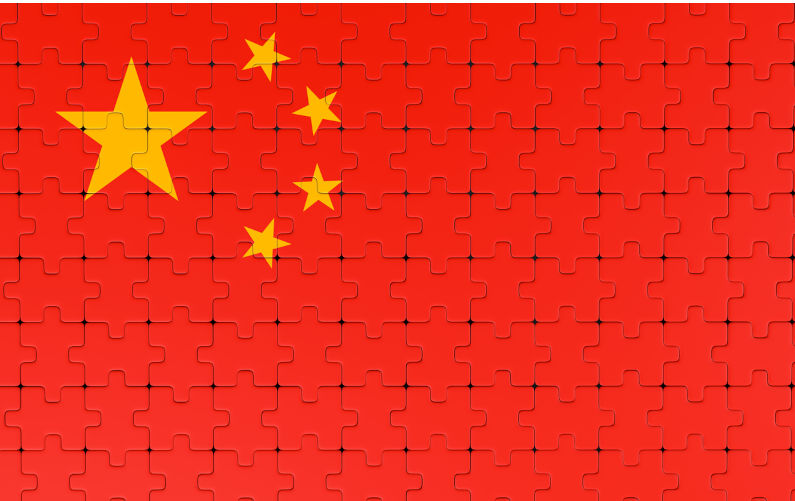Moving to China has opened my eyes in a way I never expected. The stories I grew up hearing, the ones I accepted without much thought, started to unravel. One of the toughest things I’ve had to face is realising that the West, where I’ve spent most of my life, might not always be the “good guys” I thought they were. This was a hard pill to swallow.
Take the recent AUKUS deal as an example. Australia is spending hundreds of billions of dollars to buy nuclear-powered submarines from the U.S. and the U.K., supposedly to protect itself from China, its biggest trading partner. China has no plan to invade Australia. What threat could China pose to Australia? This sounds more like Australia playing its part in the U.S. agenda. It is counterintuitive and even harmful to their own interests. To make matters worse, the U.K. admitted that part of the motivation was “revenge” against France. It’s disheartening to see such important decisions influenced by petty squabbles rather than genuine national interest.
Living in China has shown me firsthand how different reality is from the narratives often pushed in the West. I’ve seen how terms like the “China Shock” are used to create fear and justify aggressive policies. This kind of rhetoric fosters an “us versus them” mentality, making it easier to impose sanctions and rally the ignorant against China. Ignorance is bliss, but is also a very dangerous behaviour.
I’ve also noticed how the media can subtly shape public opinion. For example, headlines often use sensational or emotionally charged language that can mislead readers about the true nature of a story. Incidents may be reported in a way that emphasises negative aspects without providing full context, leading those who don’t read beyond the headline to develop skewed perceptions. These are some of the subtle tactics that influence how people view other countries, especially China.
It’s astonishing how many people who’ve never been to China, let alone lived here, are adamant that they know more about the country than those of us who actually reside here. They form strong opinions based solely on secondhand information, often clashing with the firsthand experiences of both Chinese citizens and foreigners who’ve spent significant time travelling and living throughout China. Having witnessed the direct contradictions between what is often reported in Western media and the reality on the ground, it’s clear that personal experience paints a very different picture. Yet, these individuals remain convinced of their views, highlighting how powerful and pervasive media influence can be.
Media can have a profound impact on shaping people’s beliefs and perceptions, sometimes leading to a form of indoctrination or “brainwashing.” Through repetitive exposure to biased or one-sided information, individuals may develop deeply ingrained views that align with the presented narratives. Psychological phenomena like confirmation bias and the backfire effect explain how people tend to favour information that confirms their existing beliefs while dismissing or reacting negatively to contradictory evidence. When confronted with truths that challenge their preconceived notions, especially those shaped without firsthand experience, they might lash out defensively. This reaction serves as a protective mechanism to maintain their worldview and avoid the discomfort of cognitive dissonance. In the context we’ve discussed, it highlights how powerful media influence can be and the challenges in addressing misconceptions perpetuated by persistent narratives.
The more time I spend here, the more I realise that collaboration brings better results than confrontation. China’s advancements in technology, commitment to clean energy and contributions to global markets are significant, but often overshadowed by Western fears of losing dominance. Instead of acknowledging these positives, there’s a tendency to resort to bullying tactics, sanctions and spreading misinformation.
It’s been a challenging journey reconciling these observations with the beliefs I held for so long. Coming to terms with the idea that the world isn’t just black and white and that the West doesn’t have all the answers, has been both tough and liberating. I’ve learned the importance of forming my own opinions based on firsthand experiences rather than accepting what’s been fed to me.
Since moving here, I’ve seen how much there is to appreciate. The people are welcoming, the culture is rich and there’s a sense of progress that’s palpable. It’s a far cry from the oppressive image I once had. I’ve realised that many misconceptions are born from a lack of understanding and exposure.
China is now more accessible than ever, with many countries enjoying visa-free travel or simplified entry procedures. Perhaps it’s time to set aside any unfounded fears and see the country for yourself. Visiting China could be the most eye-opening experience you’ll ever have, challenging and possibly overturning any preconceived notions you hold. Be prepared for your expectations to be transformed by the reality on the ground. If you’re genuinely curious about understanding China better, there’s no substitute for firsthand experience. But if you’re unwilling to question the narratives you’ve been told, you might not even consider it. For those open to discovery, China awaits with surprises that could change your perspective entirely.

James Wood
James Wood is a British-Australian IT professional specialising in artificial intelligence and cyber security, currently living in China. With a career rooted in the technology sector, he is passionate about geopolitics, particularly China’s evolving role on the global stage, offers him a unique perspective that bridges technology and global security matters. An avid creative writer and photographer, he enjoys capturing the beauty of the world and stays active through hiking and fitness. Living in China has allowed James to experience the country firsthand, free from Western preconceptions, enriching his appreciation for Chinese culture and viewpoints. His open-minded approach directly results from his time living in China.
